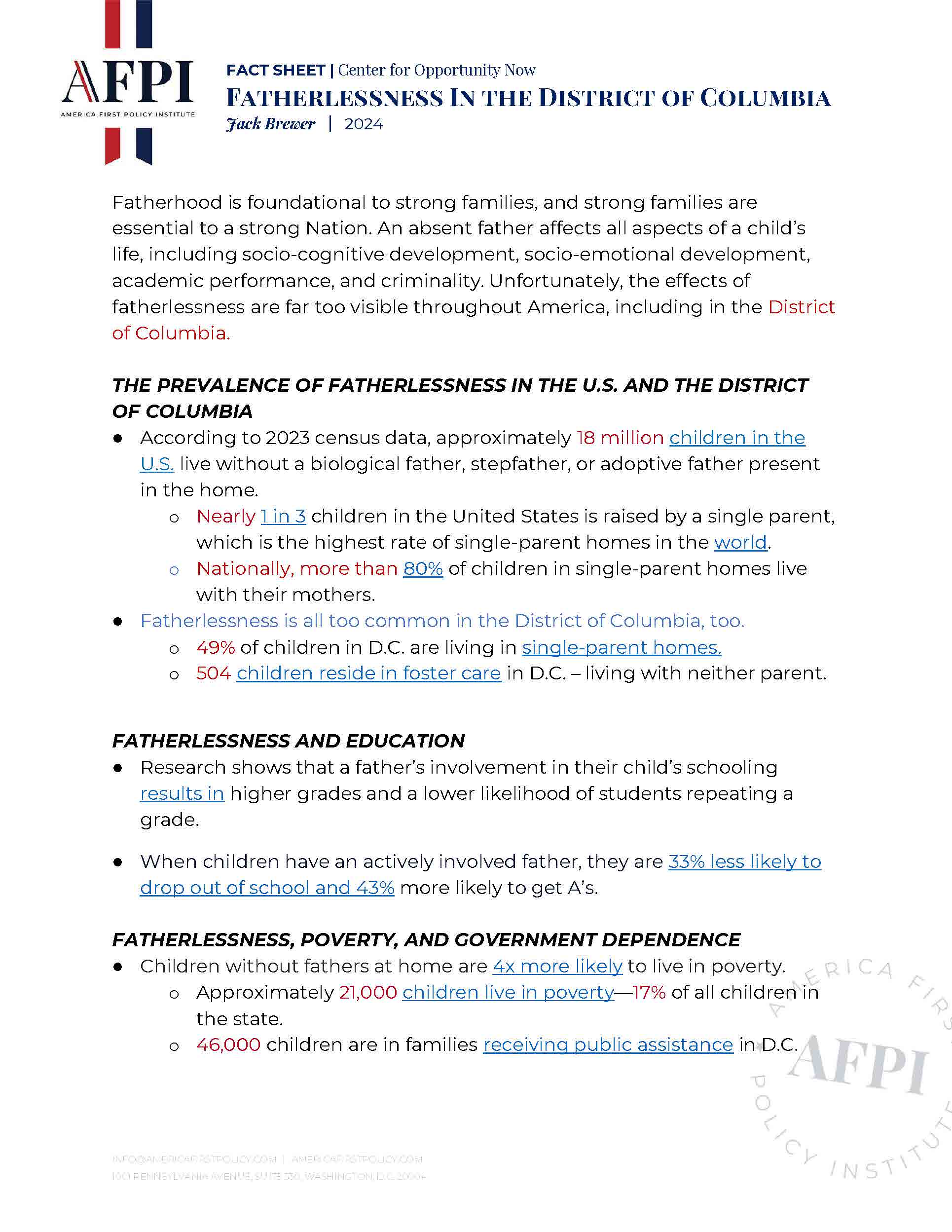Jack Brewer ,
December 29, 2024
Fatherlessness In the District of Columbia
Fatherhood is foundational to strong families, and strong families are essential to a strong Nation. An absent father affects all aspects of a child’s life, including socio-cognitive development, socio-emotional development, academic performance, and criminality. Unfortunately, the effects of fatherlessness are far too visible throughout America, including in the District of Columbia.
THE PREVALENCE OF FATHERLESSNESS IN THE U.S. AND THE DISTRICT OF COLUMBIA
- According to 2023 census data, approximately 18 million children in the U.S. live without a biological father, stepfather, or adoptive father present in the home.
- Nearly 1 in 3 children in the United States is raised by a single parent, which is the highest rate of single-parent homes in the world.
- Nationally, more than 80% of children in single-parent homes live with their mothers.
- Fatherlessness is all too common in the District of Columbia, too.
- 49% of children in D.C. are living in single-parent homes.
- 504 children reside in foster care in D.C. – living with neither parent.
FATHERLESSNESS AND EDUCATION
- Research shows that a father’s involvement in their child’s schooling results in higher grades and a lower likelihood of students repeating a grade.
- When children have an actively involved father, they are 33% less likely to drop out of school and 43% more likely to get A’s.
FATHERLESSNESS, POVERTY, AND GOVERNMENT DEPENDENCE
- Children without fathers at home are 4x more likely to live in poverty.
- Approximately 21,000 children live in poverty—17% of all children in the state.
- 46,000 children are in families receiving public assistance in D.C.
